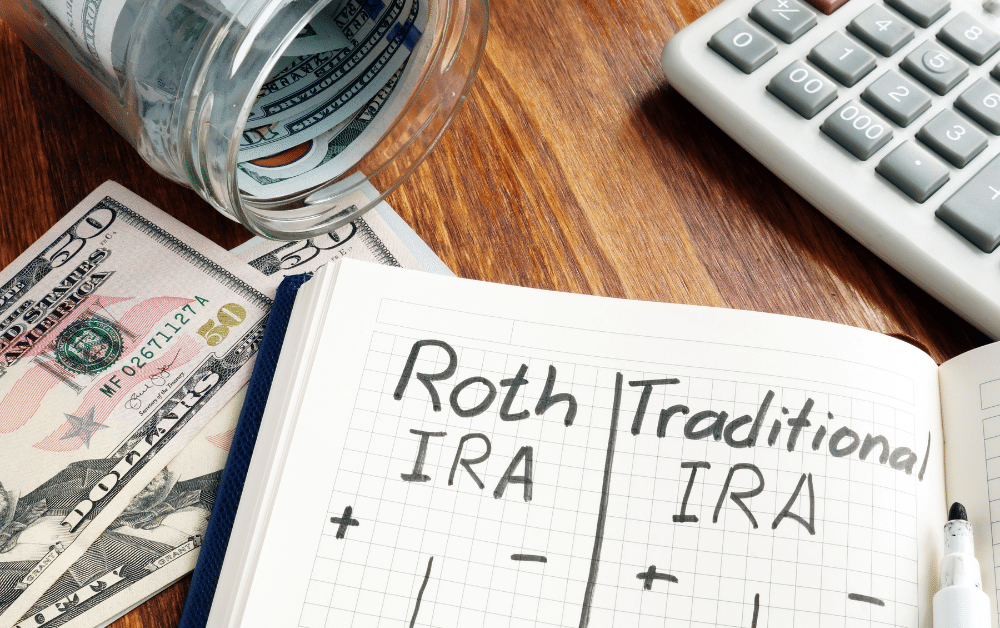15 Best Tax-Free Retirement Countries for US Expats (2025 Guide)

- Quick Answer: Which Country is Most Tax-Friendly for Retirees?
- Do I Have to Pay US Taxes If I Retire Overseas?
- The 15 Cheapest Countries for Retirement (With Tax Benefits)
- Best Expat Retirement Countries by Region
- What Countries Will Pay You to Retire There?
- Which Country Has the Highest Retirement Benefits?
- Tax-Free Retirement in Europe: Your Options
- Smart Tax Planning Strategies for Expat Retirees
- Critical Considerations Before You Move
- Red Flags: Countries to Approach with Caution
- Your Step-by-Step Action Plan
- Additional Resources for Retiring Abroad
- Frequently Asked Questions
- Retiring Abroad Doesn’t Have To Be Complicated
More Americans than ever are retiring abroad to stretch their dollars and reduce their tax burden. But finding truly tax-free retirement countries isn’t just about local tax laws—you also need to understand your ongoing US tax obligations as a citizen.
The good news? Several countries offer genuine tax advantages for American retirees, from complete foreign income exemptions to flat tax rates as low as 7%. The key is knowing which destinations offer the best combination of tax benefits, affordable living, and quality of life.
Let’s explore the countries offering the best tax advantages for American retirees, plus what you need to know about managing your US tax responsibilities abroad.
Quick Answer: Which Country is Most Tax-Friendly for Retirees?
Panama consistently ranks as the most tax-friendly retirement destination for Americans, offering complete exemption from taxes on foreign-sourced income, extensive retiree discounts, and use of the US dollar. However, the “best” choice depends on your income level, lifestyle preferences, and healthcare needs.
Top 5 Tax-Friendly Options:
- Panama – Complete foreign income exemption + extensive discounts
- Belize – Zero tax on all foreign income (QRP program)
- Malaysia – No tax on foreign passive income (MM2H program)
- Costa Rica – Territorial taxation + excellent healthcare
- Greece – 7% flat tax on all foreign income for 15 years
Do I Have to Pay US Taxes If I Retire Overseas?
Yes, as a US citizen, you’ll still need to file US tax returns and potentially pay US taxes on your worldwide income, even in retirement abroad. This is because the US uses citizenship-based taxation, unlike most countries that only tax residents.
However, several tax benefits can help reduce or eliminate your US tax liability:
Key US Tax Benefits for Expat Retirees
- Foreign Tax Credit (FTC): This dollar-for-dollar credit offsets US taxes with foreign taxes you’ve paid. It’s particularly valuable for retirees since it applies to passive income like pensions, Social Security, and investment returns.
- Tax Treaties: The US has treaties with over 65 countries that can reduce double taxation on specific income types, though these often include “savings clauses” that preserve US taxation rights for citizens.
Essential Filing Requirements
You’ll still need to complete forms like:
- Form 1040 (your regular tax return)
- FBAR if foreign accounts exceed $10,000 at any point
- Form 8938 for foreign assets above certain thresholds
- Form 1116 to claim Foreign Tax Credits
Managing both US and foreign tax obligations requires specialized expertise. If you’re planning an international retirement, consider working with expat tax professionals who can help with Foreign Tax Credit optimization, FBAR filing, and ensuring compliance across multiple jurisdictions. Contact us today to learn more.
The 15 Cheapest Countries for Retirement (With Tax Benefits)
Here are the most affordable retirement destinations that also offer significant tax advantages for US expats:
Ultra-Low Cost (Under $1,500/month)
- Nicaragua – $1,000/month, no foreign income tax
- Ecuador – $1,200/month, foreign income exemption for seniors
- Guatemala – $1,300/month, territorial tax system
- Philippines – $1,400/month, pension income exemption
Low Cost ($1,500-$2,500/month)
- Mexico – $1,800/month, no tax on US pensions/Social Security
- Thailand – $2,000/month, territorial taxation
- Vietnam – $2,100/month, no tax on foreign income
- Dominican Republic – $2,200/month, complete pension exemption
- Colombia – $2,300/month, foreign income not taxed
- Panama – $2,400/month, territorial system + retiree discounts
Moderate Cost ($2,500-$4,000/month)
- Costa Rica – $2,800/month, no foreign income tax + universal healthcare
- Malaysia – $3,200/month, foreign passive income exemption
- Portugal – $3,500/month, favorable tax treaties
- Uruguay – $3,600/month, territorial taxation
- Chile – $3,800/month, foreign income exemption available
Best Expat Retirement Countries by Region
Central America: Tax-Free Paradise
Panama: The Gold Standard
- Tax Benefits: Complete foreign income exemption, US dollar currency
- Pensionado Perks: 25% off utilities, 50% off entertainment, 25% off airfare
- Requirements: $1,000 monthly pension ($750 with $100K property)
- Why It’s #1: Combines zero foreign income tax with extensive discount programs
Costa Rica: Healthcare Haven
- Tax Benefits: Territorial taxation, no inheritance tax
- Healthcare: World-class system for $40-80/month
- Requirements: $1,000 monthly pension income
- Best For: Health-conscious retirees prioritizing medical care
Belize: English-Speaking Tax Haven
- Tax Benefits: Zero tax on all foreign income through the QRP program
- Language: English is the official language
- Requirements: Age 40+, $2,000 monthly foreign income
- Best For: Those wanting zero foreign income tax without language barriers
Nicaragua: Ultra-Affordable
- Tax Benefits: No foreign income tax, extensive import duty exemptions
- Cost: Couples live comfortably on $1,500/month
- Requirements: Age 45+, $1,000 monthly pension
- Consideration: Political stability concerns
Europe: Sophisticated Tax Planning
Greece: Mediterranean Tax Efficiency
- Tax Benefits: 7% flat tax on ALL foreign income for 15 years
- Coverage: Pensions, dividends, interest, capital gains
- Requirements: €3,500 monthly passive income or €250K property investment
- Best For: Higher-income retirees wanting a European lifestyle
Malta: EU Benefits with Tax Efficiency
- Tax Benefits: 15% flat tax on foreign income, English-speaking
- Minimum Tax: €7,500 annually
- Requirements: €275K property purchase or €9,600 annual rental
- Best For: EU access with favorable taxation
Cyprus: Non-Dom Advantages
- Tax Benefits: Zero tax on foreign dividends/interest for non-doms
- Pension Tax: First €3,420 tax-free, then 5-35% rates
- Requirements: €30K annual income, property purchase/rental
- Best For: Investment-focused retirees
Italy: Southern Charm with Tax Breaks
- Tax Benefits: 7% flat tax on foreign income for 9 years
- Location: Southern towns under 20,000 population
- Requirements: 5+ years non-resident before applying
- Best For: Cultural enthusiasts wanting European heritage
Get the Free Download That Makes Filing Taxes Simple

Asia-Pacific: Modern Living, Low Taxes
Malaysia: Expat-Friendly Southeast Asia
- Tax Benefits: No tax on foreign passive income (MM2H program)
- Healthcare: Excellent system, English widely spoken
- Requirements: $150K-$1M deposit depending on tier
- Best For: Modern amenities with cultural diversity
Philippines: Island Paradise
- Tax Benefits: Pension income exemption, no travel tax
- Community: 200,000+ US expats
- Requirements: Age 35+, varying deposit amounts
- Best For: Beach lovers with established expat networks
Thailand: Cultural Richness
- Tax Benefits: Territorial taxation, recent Long-Term Resident visa
- Cost: Very affordable outside Bangkok
- Requirements: Various visa options available
- Best For: Cultural immersion with low living costs
Latin America: Proximity and Value
Mexico: Close to Home
- Tax Benefits: No tax on US pensions/Social Security
- Healthcare: Quality private care at 30% of US costs
- Requirements: $2,700+ monthly income or $108K investment
- Best For: Maintaining US connections while abroad
Uruguay: South American Stability
- Tax Benefits: Territorial taxation, foreign income exemption
- Stability: Strong democratic institutions
- Requirements: Proof of income, clean criminal record
- Best For: Political stability with tax efficiency
Ecuador: Dollarized Economy
- Tax Benefits: No tax on foreign pensions, senior discounts
- Currency: Uses US dollar
- Requirements: $1,350 monthly income
- Best For: US dollar convenience with low costs
Colombia: Emerging Destination
- Tax Benefits: Foreign income is generally not taxed
- Cost: Very affordable, especially outside major cities
- Requirements: Pension or investment visa options
- Best For: Adventure seekers wanting ultra-low costs
What Countries Will Pay You to Retire There?
While no countries literally “pay” you to retire there, several offer substantial financial incentives that can feel like getting paid:
Countries with Cash-Like Benefits
Greece: The 7% flat tax effectively gives you a 30-40% “bonus” compared to standard tax rates on your foreign income.
Panama: Pensionado discounts can save $3,000-5,000 annually:
- 25% off utility bills (saves $600/year average)
- 50% off entertainment (saves $1,200/year average)
- 25% off airfare (saves $500+ per trip)
- 20% off healthcare (saves $1,000+ annually)
Italy: The 7% pension tax rate in Southern Italy can save high-income retirees $10,000+ annually compared to standard rates.
Dominican Republic: Law 171-07 benefits include:
- 100% pension income tax exemption
- 50% property tax reduction
- Duty-free imports up to $20,000
Investment Incentive Programs
Several countries offer “Golden Visa” programs that provide residency (and eventual citizenship) in exchange for investments:
- Portugal: €500,000 investment fund (though real estate no longer qualifies)
- Greece: €250,000 property investment
- Spain: €500,000 property investment
- Malta: €600,000-€750,000 depending on location
Which Country Has the Highest Retirement Benefits?
The answer depends on how you define “benefits,” but here are the leaders in key categories:
Overall Best Package: Panama
- Complete foreign income tax exemption
- Extensive discount programs (25-50% savings)
- US dollar currency system
- Modern healthcare with English-speaking doctors
- Established expat communities
Best Healthcare Benefits: Costa Rica
- Universal healthcare system ranked #1 in Latin America
- Monthly premiums of $40-80
- Excellent preventive care
- Modern facilities with affordable private options
Highest Tax Savings: Greece
- 7% flat tax vs. potential 40 %+ elsewhere
- Applies to ALL foreign income types
- 15-year duration
- EU residency benefits
Most Comprehensive Discounts: Panama
- Utility discounts (25%)
- Entertainment discounts (50%)
- Transportation discounts (30%)
- Healthcare discounts (15-20%)
- Import duty exemptions
Best for High-Net-Worth: Cyprus
- Zero tax on foreign dividends/interest
- No inheritance or gift taxes
- Sophisticated banking system
- EU passport potential
Tax-Free Retirement in Europe: Your Options
European tax-free retirement has become more challenging since Portugal’s NHR program ended, but several attractive options remain:
Current European Tax Benefits
- Greece: 7% flat tax for 15 years on all foreign income
- Malta: 15% flat tax with €7,500 minimum
- Cyprus: Non-dom status eliminates tax on foreign investment income.
- Italy: 7% flat tax for 9 years (Southern regions only)
Comparison: European Tax-Friendly Options
| Country | Tax Rate | Duration | Requirements | Min Investment |
| Greece | 7% flat | 15 years | €3,500/month income | €250,000 property |
| Malta | 15% flat | Indefinite | €275,000 property | €275,000 |
| Cyprus | 0%* | Indefinite | €30,000/year income | Property purchase |
| Italy | 7% flat | 9 years | Southern regions only | None |
*On foreign investment income for non-doms
Why Europe Appeals Despite Higher Costs
- EU residency benefits: Travel freely across 27 countries
- Healthcare: World-class systems
- Infrastructure: Excellent transportation, internet, utilities
- Culture: Rich history, arts, cuisine
- Safety: Generally very safe for retirees
Dreading the last minute scramble of pulling together your tax documents? Despair no more!

Smart Tax Planning Strategies for Expat Retirees
Optimizing Your Tax Strategy
Layer Your Benefits: Combine foreign tax exemptions with US tax credits for maximum savings.
Time Your Move: Consider tax residency rules and treaty benefits when planning your relocation date.
Structure Your Income: Work with professionals to optimize how you receive retirement income abroad.
Managing Multiple Tax Obligations
Foreign Tax Credit Strategy:
- Pay small amounts of foreign tax to maximize US credits
- Coordinate foreign and US tax planning
- Consider the timing of income recognition
Treaty Planning:
- Understand which country has primary taxation rights
- Plan around tie-breaker rules
- Consider treaty shopping opportunities
Critical Considerations Before You Move
Healthcare Planning Deep Dive
Medicare Reality: Medicare doesn’t cover overseas medical care except in very limited circumstances near US borders.
Healthcare Options Abroad:
- Local public systems: Often excellent and affordable
- Private local insurance: Typically much cheaper than US options
- International insurance: Covers worldwide care, includingthe US
- Medical tourism: Plan for returning to the US for major procedures
Banking and Financial Management
Multi-Country Banking Strategy:
- Keep US accounts for Social Security/pension deposits
- Open local accounts for daily expenses
- Consider international banks with both US and foreign presence
- Plan for FBAR reporting requirements
Currency Risk Management:
- Understand how exchange rates affect your income
- Consider currency hedging strategies
- Plan for both strong and weak dollar scenarios
Estate Planning Updates
- Document Validity: US wills may not be enforceable abroad
- Tax Implications: Foreign inheritance taxes can be substantial.
- Beneficiary Planning: Consider how foreign residency affects beneficiaries
- Trust Structures: Some US trusts have adverse foreign tax consequences
Red Flags: Countries to Approach with Caution
While many countries offer tax benefits, some present significant risks:
Political/Economic Instability
- Venezuela: Extreme economic instability
- Argentina: Currency controls and high inflation
- Turkey: Political tensions affecting expat treatment
Limited Healthcare
- Some African nations: Inadequate medical facilities
- Rural areas globally: Limited access to quality care
Complex Tax Situations
- France: High taxation despite treaty benefits
- Germany: Complex residency rules
- Australia: Extensive tax on foreign income
Your Step-by-Step Action Plan
Phase 1: Assessment (Months 1-2)
- Calculate your retirement income from all sources
- Assess your risk tolerance for international living
- Identify your priorities: taxes, healthcare, lifestyle, proximity to the US
- Research visa requirements for your top 3-5 countries
Phase 2: Deep Research (Months 3-6)
- Consult expat tax specialists about your specific situation
- Connect with expat communities in target countries
- Research healthcare options and costs
- Understand local banking and financial systems
Phase 3: Testing (Months 7-12)
- Plan extended visits to top destinations
- Test daily living in different areas
- Meet with local professionals (lawyers, accountants, doctors)
- Evaluate your comfort level with language and culture
Phase 4: Preparation (Year 2)
- Finalize your destination choice
- Begin visa application process
- Update estate planning documents
- Plan your move logistics and timeline
Additional Resources for Retiring Abroad
Explore these verified, trustworthy sources for deeper insights into retirement planning abroad:
US Government Resources
- IRS International Taxpayers: IRS guidelines on managing your US taxes overseas.
- IRS Publication 54 (Tax Guide for US Citizens Abroad): Official IRS publication outlining tax obligations for expats.
- US State Department Travel Advisories: Stay informed about the latest safety and travel recommendations.
- US State Department Retirement Abroad Guide: Official guidance on retiring overseas from the US government.
Frequently Asked Questions
Q: Can I lose my Social Security if I retire abroad?
A: No, you can receive Social Security in most countries, though some have restrictions. Payments may be suspended in certain countries but resume when you return or move to an eligible country.
Q: How do I prove foreign tax residency for treaty benefits?
A: Requirements vary by country but typically include spending a minimum number of days there, having a permanent address, and demonstrating social/economic ties to the country.
Q: What happens to my 401(k) and IRA when I retire abroad?
A: Your accounts remain intact, but distributions are still taxable to the US. Some countries may also tax these distributions, though tax treaties can provide relief.
Q: Can I vote in US elections from abroad?
A: Yes, through absentee ballot. Register with your state and request ballots for each election.
Q: What if the tax laws change after I move?
A: Tax laws can change, which is why it’s important to work with professionals who monitor these changes and can help you adapt your strategy.
Remember: Tax laws change frequently, and individual situations vary significantly. This information is for educational purposes only. Always consult with qualified tax professionals before making major financial decisions about retiring abroad.
Retiring Abroad Doesn’t Have To Be Complicated
The complexity of managing US tax obligations while living abroad makes professional guidance valuable for most expat retirees. Whether you need help with annual tax preparation, FBAR filing, or getting caught up on delinquent returns, Greenback Expat Tax Services can ensure you’re maximizing benefits like the Foreign Tax Credit while staying compliant with all US requirements.
Contact us, and one of our customer champions will gladly help. If you need very specific advice on your specific tax situation, you can also click below to get a consultation with one of our expat tax experts.



